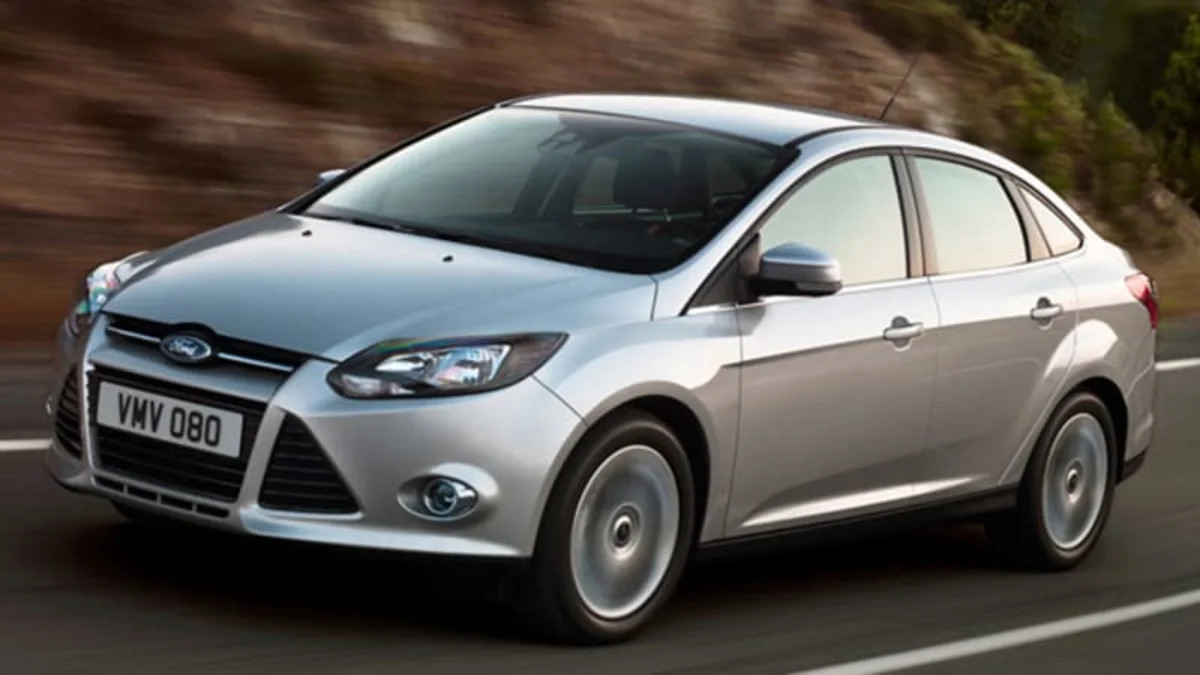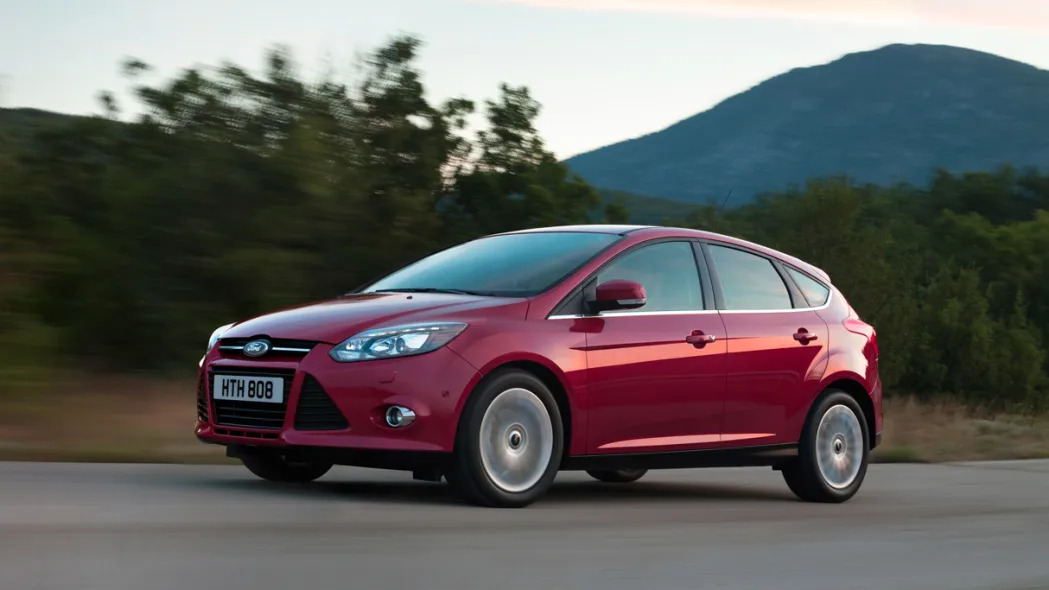2012 Ford Focus – Click above for high-res image gallery
The 2012 Ford Focus is set to hit dealers early next year, and in addition to a cadre of standard and optional features, Ford is equipping every new Focus with its new breed of "torque vectoring control."
For the uninitiated, torque vectoring systems actively split power between the two driven wheels to maximize traction and increase performance. Some higher-end systems manipulate the output to each wheel through a set of electronically controlled gears, while others apply a subtle amount of braking to the inside wheel, causing more power to be sent to the outside wheel, thus helping rotate the vehicle through a turn. Ford is using the latter on the 2012 Focus, the first implementation of its kind on a Blue Oval model in North America.
Thanks to the continued implementation of standard traction control systems, these torque vectoring setups are becoming more common and have finally reached the compact segment. While the benefits generally outweigh the negatives, we've found other brake-based systems have a tendency to overheat the pads, rotors and fluid when flogged long and hard enough (ahem, GTI). We'll be able to test it out for ourselves soon, so look for a full driving report in just over a month. In the meantime, get the full details in the press release after the jump.
FORD TECHNOLOGY ALLOWS NEW FORD FOCUS TO CARVE THROUGH TURNS LIKE DOWNHILL SKIER
- The all-new 2012 Ford Focus features standard torque vectoring control to increase vehicle stability in turns by applying slight braking force to one side
- Torque vectoring control is a Focus class-exclusive feature that serves as a confidence- builder for novice drivers, while pleasing enthusiasts with added control when cornering
- Torque vectoring control provides stabilizing braking force to an individual drive wheel in a similar way that a skier or board-rider would shift weight to carving edge when turning
- slight braking force to the wheel and the tire that is subject to potential slippage to help the driver and vehicle gracefully negotiate the curve.
The all-new 2012 Ford Focus is the first beneficiary of a new class-exclusive Ford technology that employs downhill skiing and snowboarding moves to increase vehicle stability in turns.
Engineered to increase novice driver confidence by adding a finer sense of control in curves, the next-generation Focus will please enthusiast drivers as well with the addition of a vehicle stability control system previously reserved for premium sports cars.
"The new Focus is the first North American Ford vehicle to offer torque vectoring control," said Rick Bolt, program manager for the Ford Focus. "This is a technology that has been offered on high-end sports cars, yet Ford is making it standard on their new small car."
Just as a downhill skier or board rider shifts weight to their outside edge in transition from schuss to edge – adding balance and stability to carve through a turn – torque vectoring control provides
The slight braking pressure applied to just one driven wheel is imperceptible to the driver. The behind-the-wheel experience is an improved sense of stability and control throughout the curve. This increased vehicle stability in cornering situations is sure to please enthusiast drivers yet serves as a confidence builder for novice drivers as well.
Torque vectoring control uses the Focus braking system to imitate the effect of limited-slip differential, constantly balancing the distribution of engine output between the driven front wheels to suit driving conditions and road surface. When accelerating through a tight corner, the system applies an imperceptible degree of braking to the inside front wheel, so that more engine torque goes to the outside wheel, providing additional traction, better grip and improved vehicle handling.
The system is designed to delight experienced and enthusiastic drivers but also to provide less- experienced drivers with confidence and a better sense of vehicle control, especially in difficult driving conditions.
"Torque vectoring control elevates the dynamic capability of the entire Focus model range, from an S series sedan through a Titanium Sport Package hatchback," said Bolt, an automotive enthusiast, frequent road course track-day participant, instructor, former Sports Car Club of America racer and – not surprisingly – downhill skier.
"Because torque vectoring control is on all our Focus models, it will elevate skill sets across a broad range of drivers," Bolt said. "The new Focus is differentiated from other vehicles in the segment by style and design, the technology it contains and the superior driving experience it provides."
The all-new 2012 Ford Focus goes on sale in early 2011.



Sign in to post
Please sign in to leave a comment.
Continue